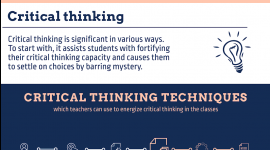In today’s dynamic professional landscape, technical expertise alone isn’t sufficient to guarantee career advancement.
Employers increasingly value soft skills—interpersonal attributes that facilitate effective collaboration, communication, and adaptability.
Understanding what are the 7 soft skills can empower individuals to enhance their professional relationships and navigate workplace challenges successfully.
What are the 7 soft skills?

The seven essential soft skills pivotal for career success include:
-
Communication
Effective communication encompasses active listening, clear articulation, and appropriate non-verbal cues. Mastering this skill ensures that ideas are conveyed clearly and misunderstandings are minimized.
-
Teamwork
Collaborating efficiently with diverse teams requires empathy, respect, and the ability to integrate various perspectives. Strong teamwork fosters a cohesive work environment and drives collective success.
-
Problem-Solving
This skill involves identifying issues, analyzing information, and implementing effective solutions. Proficient problem-solvers can navigate complex situations and contribute to organizational resilience.
-
Adaptability
In an ever-evolving work environment, adaptability is crucial. It entails embracing change, learning new skills, and adjusting strategies to meet shifting demands.
-
Critical Thinking
Critical thinkers assess situations objectively, consider various outcomes, and make informed decisions. This analytical approach is vital for strategic planning and innovation.
-
Time Management
Efficiently organizing tasks and prioritizing responsibilities ensures productivity and reduces stress. Effective time management leads to timely project completion and goal achievement.
-
Interpersonal Skills
Building and maintaining positive relationships in the workplace hinges on strong interpersonal skills. These include empathy, active listening, and the ability to navigate social dynamics constructively.
The Importance of Soft Skills in Career Success

Understanding what are the 7 soft skills is just the beginning. These skills are integral the value of education to career advancement for several reasons:
-
Enhanced Collaboration: Soft skills like communication and teamwork facilitate better collaboration, leading to increased productivity and innovation.
-
Leadership Development: Emotional intelligence and problem-solving are key components of effective leadership.
-
Adaptability to Change: In today’s dynamic work environment, adaptability and critical thinking enable individuals to navigate change successfully.
-
Improved Job Performance: Time management and problem-solving skills contribute to efficient work habits and goal achievement.
-
Positive Workplace Relationships: Emotional intelligence and communication skills foster a supportive and collaborative work culture.
Enhancing Your Soft Skills

Developing these soft skills involves intentional practice and self-awareness:
-
Seek Feedback: Regularly ask colleagues for input on your interpersonal interactions and communication style.
-
Engage in Active Learning: Participate in workshops or courses focused on soft skill development.
-
Reflect on Experiences: After team projects or meetings, consider what went well and areas for improvement.
-
Set Personal Goals: Identify specific soft skills to enhance and create actionable plans to develop them.
Frequently Asked Questions (FAQs)
Q1: What are the 7 soft skills importance in the workplace?
Ans: Soft skills facilitate effective collaboration, enhance communication, and enable adaptability, all of which are essential for organizational success.
Q2: Can soft skills be learned or are they innate?
Ans: While some individuals may naturally possess certain soft skills, they can be developed and refined through conscious effort and practice.
Q3: How can I assess my current soft skills?
Ans: Self-assessment tools, feedback from peers, and reflection on past interactions can provide insights into your soft skill proficiency.
Q4: Do soft skills vary across industries?
Ans: While the core soft skills are universally valuable, certain industries may prioritize specific skills based on their unique demands.
Q5: How do soft skills complement technical skills?
Ans: Soft skills enhance the application of technical knowledge by improving communication, teamwork, and problem-solving abilities.









